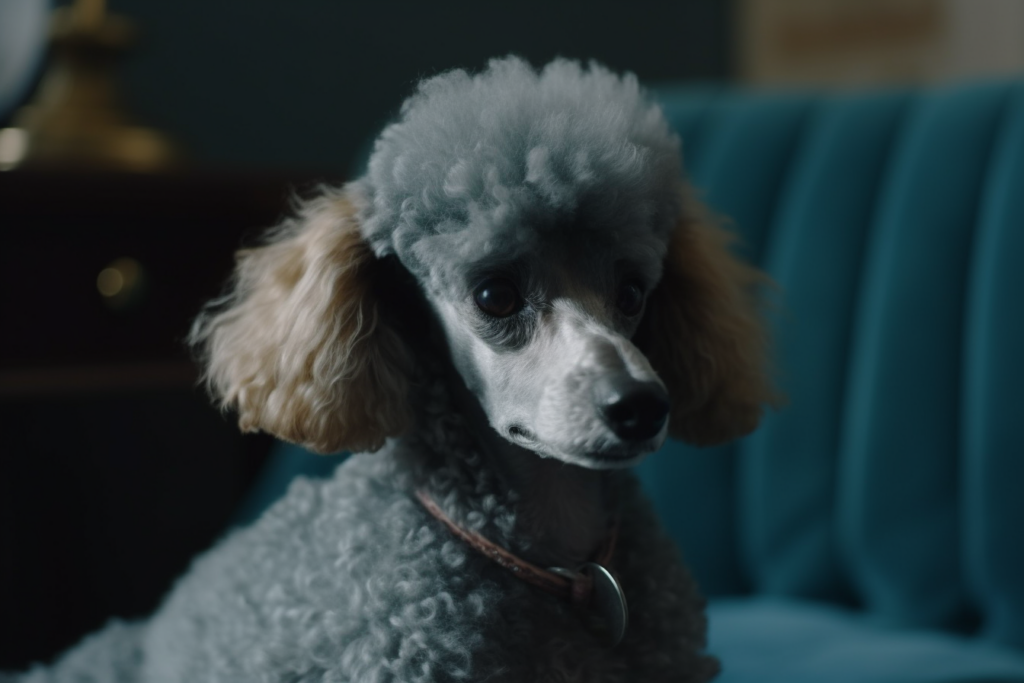The 9 Best Dog Breeds for First-time Owners
What to consider if you’ve never been a pup parent.

What to consider if you’ve never been a pup parent.

Are you a first-time dog owner looking for the ideal furry companion? Choosing the right dog breed for you can make all the difference.
We compiled a list of some of the best dog breeds for first-time owners, taking into account factors like temperament, size, exercise requirements, and grooming needs.
Read on to find the perfect breed for you!
Every pooch has a unique personality, but certain breeds tend to have specific characteristics that may make them a better fit for novice dog owners. Look for a dog that’s compatible with your lifestyle. And at Lemonade Pet, we encourage all pup parents to adopt, not shop.

Mixed-breed dogs—aka mutts—can be a great choice for first-time dog owners. They typically have a more diverse genetic background than purebred dogs, making them less prone to certain health issues compared to specific breeds.
Another advantage of choosing a mixed-breed dog is that they can come in all shapes and sizes, so it’s easier to find a pooch that fits your lifestyle and living situation.
You can often find mixed-breed dogs at reputable shelters and rescue organizations. Adopting your first dog can be a great way to give a loving home to a dog in need. Many mixed-breed dogs are already house-trained and have some basic obedience training, which can make them easier for first-time dog owners to handle.

Small and adaptable, Papillons are well-suited for apartment living or small homes. They have a friendly and outgoing personality, making them great companion dogs.
Papillons are generally healthy, intelligent, and easy to train, which makes them a good choice for first-time dog owners who may not have experience with dog training.
Potential health concerns: Dental problems and patellar luxation. Regular veterinary checkups and proper dental care can help to prevent these issues.
Other considerations: Papillons have a high energy level and require regular exercise and mental stimulation. They can become destructive if they don’t get enough exercise or if they are left alone for long periods of time. Papillons also have a tendency to bark, which can be a concern for apartment dwellers or those with close neighbors.

These small dogs are well-suited for apartment living or small homes, thanks to their adaptable nature. Their friendly personality—and hypoallergenic coats—also make them great family pets, and they form strong bonds with their owners.
Yorkies are intelligent and easy to train, which is a plus for first-time dog owners who may not have experience with dog training. They love to learn and respond well to positive reinforcement methods. They also tend to be very alert and protective of their family, which makes them great watch dogs, despite their small stature.
Potential health concerns: Dental problems and luxating patella. Regular veterinary checkups and proper dental care can help prevent these issues, and early detection is key to managing any potential health problems.
Other considerations: High energy level, which requires regular exercise and mental stimulation. Without it, Yorkies can become bored, destructive, and yappy.

A small breed—typically weighing between 9 and 16 pounds—Shih Tzus are easy to handle, with a size that makes them suitable for apartments or small homes.
They’re known for their friendly, affectionate, and outgoing nature. They enjoy being around people and other dogs, and are easy to train. They are also hypoallergenic and adaptable, and can adjust to different lifestyles and living situations.
Shih Tzus have long hair, their coat is actually low-shedding, making them ideal for owners who may be sensitive to dog hair or who prefer to keep their homes clean. Their coat also requires minimal grooming, although regular brushing and trimming around the face and ears may be necessary.
Potential health concerns: Because of their short muzzles—aka little button noses—Shih Tzus are more susceptible to breathing problems including snoring, wheezing, and panting. They’re also prone to certain eye, skin, and dental conditions, and may require regular exams and care to prevent and maintain issues like periodontal disease and cataracts.
Other considerations: While small in stature, Shih Tzus can be prone to obesity, so it’s important to maintain a proper diet (no overfeeding) and exercise. But Shih Tzus don’t require a lot of exercise. They can be happy with short walks and playtime indoors, making them ideal for pet parents who may not have a lot of time or space for exercise.

Friendly and affectionate in nature, Cavalier King Charles Spaniels are a small breed that enjoy cuddling and playing with their owners, making for great companion pets. They are also relatively easy to train, which is a plus for those new to dog ownership.
Cavalier King Charles Spaniels are generally healthy and super adaptable, and can be content living in a small apartment or a larger home.
Potential health concerns: Heart disease and ear infections. Regular veterinary checkups and proper care can help prevent these issues, and early detection is important for managing any potential health problems.
Other considerations: While generally considered a low-energy breed, they still require regular exercise and mental stimulation, otherwise they can become bored and potentially destructive.

One of the most popular dog breeds in the world, and for good reason. Labrador Retrievers are known for their friendly, outgoing nature and their love of play and exercise. For first-time dog owners who want an active companion, this breed can be an excellent choice.
Labrador Retrievers are also highly intelligent and easy to train, which makes them a good fit for first-time owners who may not have a lot of experience with dog training. They are eager to please and respond well to positive reinforcement methods.
Another benefit of owning a Labrador Retriever is their adaptability. They are comfortable living in a variety of environments, from small apartments to large homes with big yards. They are also good with children and make great family pets.
Potential health concerns: Hip and elbow dysplasia, which can cause joint pain and mobility issues. They may also be prone to obesity if they are overfed or not given enough exercise.
Other considerations: Labs have a high energy level, which requires regular exercise and mental stimulation. Without enough physical and mental activity, they can become bored and destructive.

Often considered one of the best breeds for first-time dog owners (and great family pets), Golden Retrievers have a gentle, friendly, and loyal personality. They have a natural inclination to please their owners, making them a breeze to train and handle, even for novice dog owners.
Golden Retrievers love to play, run, hike, swim, and retrieve (as the name suggests)—the perfect companion for an active owner or family that enjoys spending time outdoors. They’re also known for their adaptability to various living situations. They can thrive in apartments and small spaces as long as they get their daily dose of exercise. They are also great with children and other pets.
Potential health concerns: Hip and elbow dysplasia, which can lead to mobility problems. They may also develop heart and eye conditions, which may require regular check-ups and veterinary care.
Other considerations: Golden Retrievers have a thick, double-layered coat that sheds heavily, especially during shedding season. They require regular grooming to keep their coat clean and healthy.

Known for their elegant and sophisticated appearance, Poodles are much more than what meets the eye. They’re highly intelligent, versatile, and have a fun-loving and playful personality that makes them an ideal first dog for new owners.
One of the biggest advantages of owning a poodle is their hypoallergenic coat, which sheds very little and is less likely to cause allergic reactions in people.
Poodles are also highly trainable and eager to please their owners, making them easy to train, even for novice dog owners. They excel in obedience training, agility, and other dog sports and activities, which can provide both mental and physical stimulation for the dog and owner.
Another advantage of poodles is their versatility in size. They come in three different sizes—standard, miniature, and toy—meaning they can adapt well to different living situations, from large homes with big yards to not-so-spacious apartments.
Potential health concerns: Eye problems, skin conditions, and joint issues. Proper care, regular veterinary checkups, and a healthy diet can help prevent these issues.
Other considerations: It’s also important to keep up with regular grooming to maintain a healthy coat and avoid ear infections.

One of the main advantages of owning a Bernese Mountain Dog is their gentle and loving nature. They are known for being patient with children, loyal to their owners, and eager to please. They also have a calm and even temperament, making them a good fit for families with children or other pets.
Bernese Mountain Dogs are also highly intelligent and trainable, which can make them a good choice for first-time dog owners who are willing to invest the time and effort into training and socializing their pet.
Potential health concerns: Hip dysplasia, bloat, and cancer, which can be expensive to treat.
Other considerations: Being a large breed, Bernese Mountain Dogs require a lot of space and exercise, and shed heavily, which can be a challenge for those with allergies or a desire for a clean home. They also have a tendency to be stubborn or independent-minded, meaning they may be more challenging to train than some other breeds, and may require a firm and consistent approach to training.
Choosing a dog breed that fits your lifestyle, living situation, and preferences is crucial when considering dog ownership.
For example, if you need a dog that will thrive in an apartment without much access to outdoor space, a small, low-energy dog may be the best fit.
On the other hand, if you’re looking for a four-legged workout buddy to hit hiking trails with, a more energetic and high-maintenance breed might be better for you.
When contemplating what dog breed to choose, here are some important factors to keep in mind:
There’s no such thing as a bad dog breed, and each dog will have their own unique personality that doesn’t necessarily fit into a breed stereotype. But certain breeds are generally less suitable for first-time dog parents because of the amount of training and exercise they require, their friendliness towards others, among other quirks.
These breeds are generally not recommended for beginner pet parents:
As a new dog parent you’ll have a lot going on, and the bills can add up fast. Buying dog insurance for your new pooch is a smart (and responsible) move to help you cover the costs of their health care.
Learn more about what a Lemonade Pet policy covers here. For example, a basic policy can help cover the costs of diagnostics (like x-rays or blood tests) and treatments (like surgery or medication) for eligible accidents and illnesses. But you have the power to customize your dog’s policy with preventative care and add-on coverages to meet their needs, and your budget.
Choosing the right dog breed takes time, but you can sign up for Lemonade pet insurance in seconds. Click below to get your quote started.
A few quick words, because we <3 our lawyers: This post is general in nature, and any statement in it doesn’t alter the terms, conditions, exclusions, or limitations of policies issued by Lemonade, which differ according to your state of residence. You’re encouraged to discuss your specific circumstances with your own professional advisors. The purpose of this post is merely to provide you with info and insights you can use to make such discussions more productive! Naturally, all comments by, or references to, third parties represent their own views, and Lemonade assumes no responsibility for them. Coverage may not be available in all states.
Please note: Lemonade articles and other editorial content are meant for educational purposes only, and should not be relied upon instead of professional legal, insurance or financial advice. The content of these educational articles does not alter the terms, conditions, exclusions, or limitations of policies issued by Lemonade, which differ according to your state of residence. While we regularly review previously published content to ensure it is accurate and up-to-date, there may be instances in which legal conditions or policy details have changed since publication. Any hypothetical examples used in Lemonade editorial content are purely expositional. Hypothetical examples do not alter or bind Lemonade to any application of your insurance policy to the particular facts and circumstances of any actual claim.